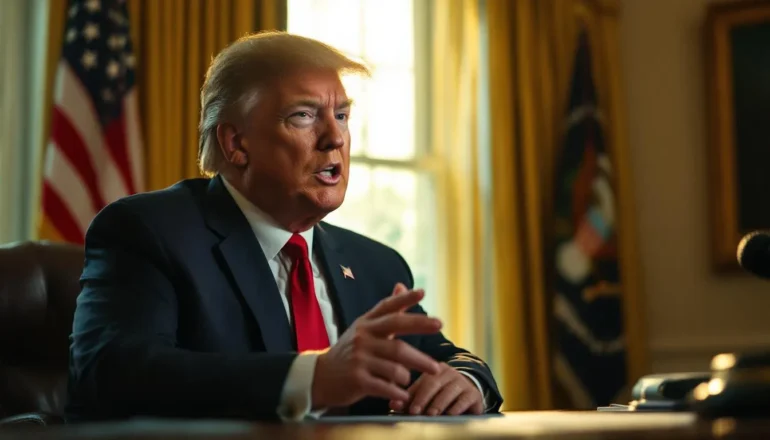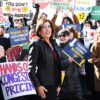🔴 Website 👉 https://u-s-news.com/
Telegram 👉 https://t.me/usnewscom_channel
On July 8, 2025, President Donald Trump, during a Cabinet meeting at the White House, publicly raised the possibility of federal intervention in the governance of Washington, D.C., and potentially New York City. Citing concerns over rising crime and ineffective local leadership, the President emphasized federal authority to step in when necessary. Trump stated, “We have tremendous power at the White House to run places when we have to,” and confirmed that his chief of staff, Susie Wiles, is actively engaging with D.C. Mayor Muriel Bowser to explore options for federal involvement. As of July 10, no formal executive orders or federal actions have been announced.
The President’s suggestion comes amid ongoing national debates regarding law and order in major urban centers. Washington, D.C. has long operated under the Home Rule Act, which grants limited self-governance while Congress retains significant oversight of local budgets and laws. Mayor Muriel Bowser responded promptly, highlighting these existing statutory arrangements and cautioning against any federal overreach. “The District’s Home Rule and Congressional oversight set clear boundaries for governance,” Bowser noted, implicitly challenging the feasibility of unilateral federal intervention.
In the case of New York City, attention is heightened by the upcoming mayoral election on November 4, 2025. Trump expressed particular concern about the leading candidate, Zohran Mamdani, whom he described as a “democratic socialist.” Mamdani’s platform includes progressive policies such as free public transit, rent freezes, and expanded social services. Other prominent contenders include Eric Adams, Andrew Cuomo, and Curtis Sliwa.
Despite the President’s comments, official data reveal a different narrative around crime in D.C. Recent statistics show that crime rates in the District are at a thirty-year low, contradicting assertions of rampant increase. Nevertheless, conservative supporters view Trump’s proposal as a decisive stance on restoring order and federal authority where local governments are perceived to have failed. The President’s remarks resonate with calls from many Americans to prioritize law enforcement and public safety, especially in cities criticized for progressive policies.
The timeline of this developing story began with the remarks made during the White House Cabinet meeting on July 8, followed by media reports on July 8 and 9. Subsequent responses from local officials, most notably Mayor Bowser, have framed the issue within the limits of the District’s legal status. The Trump administration’s next steps remain uncertain, with no executive orders issued to date. However, White House Chief of Staff Susie Wiles is reportedly coordinating closely with local leadership in Washington, D.C., suggesting ongoing discussions rather than immediate federal takeover.
Legally, any attempt by the President to federally take over city governance would face significant challenges. The District of Columbia’s Home Rule Act and Congressional authority create a complex legal framework. Additionally, interventions in New York City would raise constitutional questions concerning states’ rights and local autonomy. Congressional and judicial scrutiny is expected should formal federal action be pursued.
Looking ahead, the New York City mayoral election may influence federal involvement in 2025 and beyond. The political direction of urban centers remains a focal point for the administration. Moreover, the issue ties into broader conservative themes of upholding the rule of law, restoring order, and countering what is seen as the erosion of traditional values within America’s largest cities.
While critics decry the President’s remarks as political posturing and potential overreach, supporters argue that ensuring safe communities and reinforcing federal authority when local governments falter are paramount. This conversation is likely to intensify as the 2026 midterms approach, with law and order remaining a defining priority for many voters.
No new federal intervention has been implemented at this time. The “BREAKING” nature of this story stems from President Trump’s public statements and the ensuing political dialogue, not from any concrete federal action. The administration appears to be exploring avenues of cooperation with local officials, with developments expected in the coming months as discussions evolve.
Steeve Strange is the CEO and Editor-in-Chief of The Scoop. A passionate defender of conservative values and constitutional freedoms, he founded The Scoop to deliver truthful, America First journalism. Contact: [email protected]

